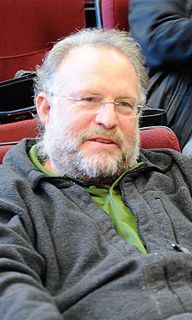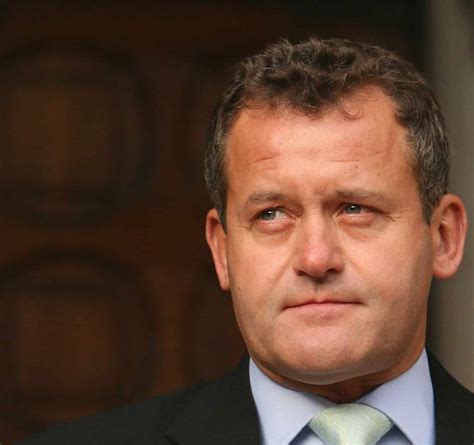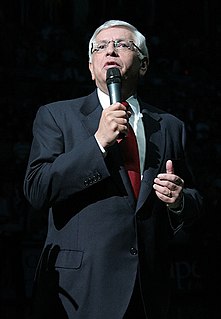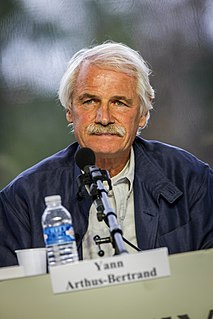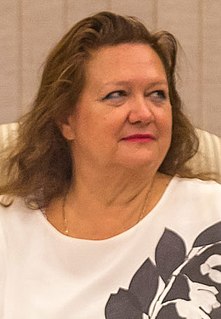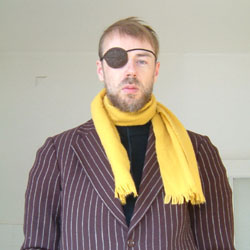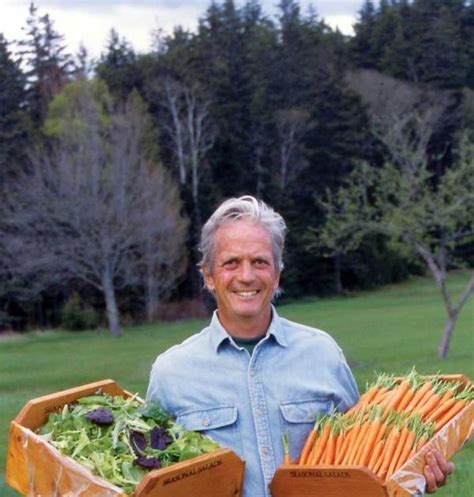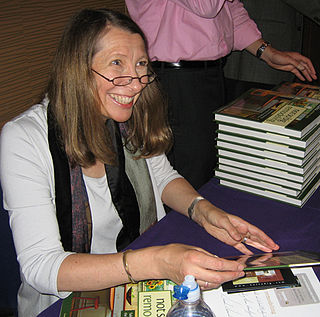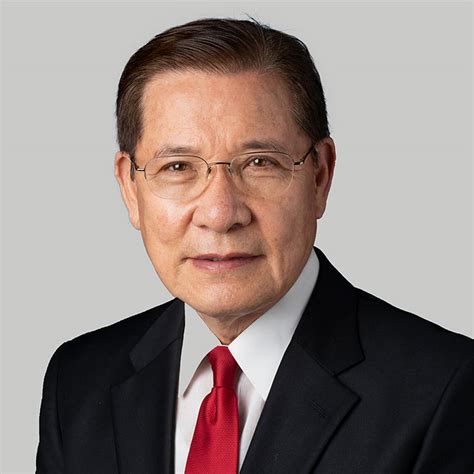Top 986 Sustainable Quotes & Sayings - Page 15
Explore popular Sustainable quotes.
Last updated on April 21, 2025.
When resources are degraded, we start competing for them, whether it is at the local level in Kenya, where we had tribal clashes over land and water, or at the global level, where we are fighting over water, oil, and minerals. So one way to promote peace is to promote sustainable management and equitable distribution of resources.
So much business is based on the belief that we should do whatever we can within legal limits to make as much money as we can. Ben & Jerry's was based on values, and we try to operate a business that not just sells ice cream but partners with all our stakeholders - whether that's suppliers or customers - to bring about a more sustainable world.
It may be a hundred-year battle to turn around our industries and finally get everyone living on sustainable energy with technology that can keep our lives comfortable. If that's the case, the first 20 years of the shift have actually done a lot to support that. But there's still a long way to go, and judging by the state of the environment, we don't have that kind of time.
The vast majority of local people will neither know all of the initiatives nor have any perception that the individual elements are beginning to contribute to making their home town more environmentally sustainable. It is even less likely that visitors will gain any picture of what is being achieved. It is to solve this problem that the Green Map System has been developed.
The students of biodiversity, the ones we most need in science today, have an enormous task ahead of molecular biology and the medical scientists. Studying model species is a great idea, but we need to combine that with biodiversity studies and have those properly supported because of the contribution they can make to conservation biology, to agrobiology, to the attainment of a sustainable world.
We must pay close attention to those with another imagination: an imagination outside of capitalism, as well as communism. We will soon have to admit that those people, like the millions of indigenous people fighting to prevent the takeover of their lands and the destruction of their environment - the people who still know the secrets of sustainable living - are not relics of the past, but the guides to our future.
Until the Great Depression, most economists clung to a vision of capitalism as a perfect or nearly perfect system. That vision wasn’t sustainable in the face of mass unemployment, but as memories of the Depression faded, economists fell back in love with the old, idealized vision of an economy in which rational individuals interact in perfect markets.
I really do encourage other manufacturers to bring electric cars to market. It's a good thing, and they need to bring it to market and keep iterating and improving and make better and better electric cars, and that's what going to result in humanity achieving a sustainable transport future. I wish it was growing faster than it is.
Cities must urge urban planners and architects to reinforce pedestrianism as an integrated city policy to develop lively, safe, sustainable and healthy cities. It is equally urgent to strengthen the social function of city space as a meeting place that contributes toward the aims of social sustainability and an open and democratic society.
I believe that, if managed well, the Fourth Industrial Revolution can bring a new cultural renaissance, which will make us feel part of something much larger than ourselves: a true global civilization. I believe the changes that will sweep through society can provide a more inclusive, sustainable and harmonious society. But it will not come easily.
While the Passover narrative [in Exodus] energizes Israel's imagination toward justice, Israel's hard work of implementation of that imaginative scenario was done at Mt. Sinai. . . . Moses' difficult work at Sinai is to transform the narrative vision of the Exodus into a sustainable social practice that has institutional staying-power, credibility, and authority.
There can be no solution to the challenge of climate change that is not global. But if we can come together in partnership, we can transform today's challenge into tomorrow's opportunity - an opportunity for green growth and sustainable prosperity... we also need a strong bottom-up push from academics and opinion-shapers such as you. Universities such as yours are founts of ideas and innovation. They are furnaces of innovation and entrepreneurship. So, send forth this word.
There is enough for everyone to have what they need without exploitation. Adequate distribution of resources, including education, without violence can lead to a sustainable system that doesn't stress the ecosphere. Alternately, continued violence feeds population surges and hoarding the products of exploitative extraction, which endanger the survival of our species. In short, if we want a future with humans on Earth, we've got to stop war.
I call the transformed world toward which we can move ‘sustainable,’ by which I mean a great deal more than a world that merely sustains itself unchanged. I mean a world that evolves, as life on earth has evolved for three billion years, toward ever greater diversity, elegance, beauty, self-awareness, interrelationship, and spiritual realization.
For any sport to be sustainable, it cannot survive on government or corporate grants alone. The sporting ecosystem needs more investments from businesses, and businesses need to see the returns from their investment in sport. Cricket has achieved that distinction, but I feel a country of a billion-plus people cannot remain captive to one sport.
If we human beings learn to see the intricacies that bind one part of a natural system to another and then to us, we will no longer argue about the importance of wilderness protection, or over the question of saving endangered species, or how human communities must base their economic futures - not on short-term exploitation - but on long-term, sustainable development.
Success for me is going beyond money and power, and measuring success based on a third metric - one founded on well-being, wisdom, our ability to wonder and to give back. Money and power by themselves are a two-legged stool. You can balance on them for a while, but eventually you're going to topple over. Basically, success the way we've defined it is no longer sustainable.
I think the thing you're seeing now with the music industry is that the people who have tight-knit communities are now able to really hold each other up because of the internet tools. And the really top-down pyramid scheme of major labels and typical superstars isn't sustainable anymore because the system has collapsed.
We were able to conclude a Paris climate agreement, which will lead the way for the rest of the world, which is groundbreaking. And together with the sustainable development goals of the agenda 2030 for the whole world, this is indeed a sea change, I think, that we see here, and, step-by-step, it will be implemented.
The idea here is for communities to decide how they meet these criteria for becoming sustainable economically, ecologically and socially.Through a community decision-making process. And exactly how that would be configured, you know, remains to be established. The process of community budgeting, participatory budgeting, is one model that's been suggested.
Preservation of the environment, promotion of sustainable development and particular attention to climate change are matters of grave concern for the entire human family. No nation or business sector can ignore the ethical implications present in all economic and social development. With increasing clarity scientific research demonstrates that the impact of human actions in any one place or region can have worldwide effects.
I really am at a place where I think we need to feed every child at school for free and feed them a real school lunch that's sustainable and nutritious and delicious. It needs to be part of the curriculum of the school in the same way that physical education was part of the curriculum, and all children participated.
After Pixar's 2006 merger with the Walt Disney Company, its CEO, Bob Iger, asked me, chief creative officer John Lasseter, and other Pixar senior managers to help him revive Disney Animation Studios. The success of our efforts prompted me to share my thinking on how to build a sustainable creative organization.
Historically Indians have been frugal in terms of living, using only as much is required. Now convenience has taken over our simple and sustainable ways of living. We used to wash clothes with our hands, we used buckets and a mug for bath, there was emphasis on ventilation - but all that is lost to the fast pace of living.
Global warming is not only the number one environmental challenge we face today, but one of the most important issues facing all of humanity... We all have to do our part to raise awareness about global warming and the problems we as a people face in promoting a sustainable environmental future for our planet.
New Age values are conscious evolution, a non-sectarian society, a non-military culture, global sharing, healing the environment, sustainable economies, self-determinat ion, social justice, economic empowerment of the poor, love, compassion in action, going beyond religious fundamentalism, going beyond nationalism/ extreme nationalism culture.
Tesla Motors was created to accelerate the advent of sustainable transport. If we clear a path to the creation of compelling electric vehicles, but then lay intellectual property landmines behind us to inhibit others, we are acting in a manner contrary to that goal. Tesla will not initiate patent lawsuits against anyone who, in good faith, wants to use our technology.
In effective, sustained citizen action, people learn the skills of public life with which to act effectively. "Commons," or the common wealth-the public goods that are objects of sustainable public action-become not only occasions for collaboration by invaluable sources of citizen education in their own right because they are the occasions for learning such skills.
New Age values are conscious evolution, a non-sectarian society, a non-military culture, global sharing, healing the environment, sustainable economies, self-determination, social justice, economic empowerment of the poor, love, compassion in action, going beyond religious fundamentalism, going beyond nationalism-extreme nationalism, culture.
Oil is dead, on its way to extinction. As a group of citizens we must speak up and act towards ending fracking. Let your government know you will not tolerate a technology that not only poisons your family but our creature family at large; let them know you want sustainable power and all the jobs that will come with that new growth.
The investment in our mining industry has been very positive for Australia but we need to be doing more if we want, as I do, more revenue for our defence - which I think is under-resourced - our police, our elderly, our hospitals, roads, infrastructure and communication, to be able to repay our debts and enable sustainable job opportunities for existing and future generations.
The tragic reality is that very few sustainable systems are designed or applied by those who hold power, and the reason for this is obvious and simple: to let people arrange their own food, energy and shelter is to lose economic and political control over them. We should cease to look to power structures, hierarchical systems, or governments to help us, and devise ways to help ourselves.
Cities should function more like ecosystems, or even metabolisms. When we build, we should be thinking about how we can integrate into the ecosystems around us, but without sacrificing all the niceties of civilization like good restaurants, concert halls, and high-speed Internet access. I'm saying that partly tongue-in-cheek, but I'm also deadly serious. The future of technology is sustainable ecology.
I enjoy the optimism of design, even though we can see it as doomed. But I'm telling most people that I'm not writing about design any more this year. It makes no sense at all during the recession unless you write about sustainable or ethical design-very basic things, like how to get clean water in countries with a shortage of it.
I would like to call on young people to commit themselves to activities that contribute toward achieving their long-term dreams. They have the energy and creativity to shape a sustainable future. To the young people I say, you are a gift to your communities and indeed the world. You are our hope and our future.
The only truly dependable production technologies are those that are sustainable over the long term. By that very definition, they must avoid erosion, pollution, environmental degradation, and resource waste. Any rational food-production system will emphasize the well-being of the soil-air-water biosphere, the creatures which inhabit it, and the human beings who depend upon it.
Recognizing that sustainable development, democracy and peace are indivisible is an idea whose time has come... Today we are faced with a challenge that calls for a shift in our thinking, so that humanity stops threatening its life-support system. We are called to assist the Earth to heal her wounds and in the process heal our own - indeed, to embrace the whole of creation in all its diversity, beauty and wonder.
Addressing the climate and biodiversity crises requires us to radically change our economic models, moving away from economic growth as the over-riding measure of progress and moving instead towards improving health and wellbeing for people and nature. That means a different economic model taking us towards a sustainable economy.
Humanity today is rightly concerned about the ecological balance of tomorrow. It is important for assessments in this regard to be carried out prudently, in dialogue with experts and people of wisdom, uninhibited by ideological pressure to draw hasty conclusions, and above all with the aim of reaching agreement on a model of sustainable development capable of ensuring the well-being of all while respecting environmental balances.
Most of us still believe in the intrinsic value of nature, but I think the first century of the environmental/conservation movement demonstrated pretty clearly that this value cannot compel a civilization-wide shift toward sustainable behavior and enterprise when stacked up against the urgent economic and social needs of 7 billion people, most of whom are struggling to get out of poverty.
James Hardie(R) siding is a sustainable and marvelous substitute for wood. It's available pre-colored and the finish truly looks like high-grade wood siding. I've used this product line for years, and have been delighted with the results. It's the only product I will consider substituting for wood, and in many climates it's significantly preferable because of its stability.
A sustainable economy represents nothing less than a higher social order one as concerned with future generations as with our own, and more focused on the health of the planet and the poor than on material acquisitions and military might. While it is a fundamentally new endeavor, with many uncertainties, it is far less risky than continuing with business as usual.
The economy has settled into a sustainable, self-reinforcing growth path, .. All major categories of the economy have contributed to economic growth. Now that businesses have begun to add to payrolls, the current expansion is self-reinforcing. Only external shocks, such as terrorist attacks or a surge in oil prices, could derail the recovery.
It shouldn't be the consumer's responsibility to figure out what's cruel and what's kind, what's environmentally destructive and what's sustainable. Cruel and destructive food products should be illegal. We don't need the option of buying children's toys made with lead paint, or aerosols with chlorofluorocarbons, or medicines with unlabeled side effects. And we don't need the option of buying factory-farmed animals.
Two eyes are given for a reason. One eye to always look at the opportunity. The second eye to always keep looking at the challenges. Because if you don't balance both, it's very easy to get carried away one way or the other. And it's when you balance the two that you find the most sustainable model.
Sometimes I wonder if the semi-conscious agenda of the media is to get between people and their souls. It is the the soul with its myriad tiny nerve endings that notices the neglected pathos, poignancy and practicality that lies at the heart of life. It's as if the media are somehow irritated and envious that anonymous people should have the quiet brilliance of their rich and sustainable inner lives.
World Health Day is an opportunity to highlight the problem, but above all, to stimulate action. It is an occasion to call on all partners - governments, international donors, civil society, the private sector, the media, families and individuals alike - to develop sustainable activities for the survival, health and well-being of mothers and children. On this World Health Day, let us rededicate ourselves to that mission.
My dear friends, God’s creation is one and it is good. The concerns for nonviolence, sustainable development, justice and peace, and care for our environment are of vital importance for humanity. They cannot, however, be understood apart from a profound reflection on the innate dignity of every human life from conception to natural death: a dignity conferred by God himself and thus inviolable.
We don't think a sustainable society need be stagnant, boring, uniform, or rigid. It need not be, and probably could not be, centrally controlled or authoritarian. It could be a world that has the time, the resources, and the will to correct its mistakes, to innovate, to preserve the fertility of its planetary ecosystems. It could focus on mindfully increasing quality of life rather than on mindlessly expanding material consumption and the physical capital stock.


